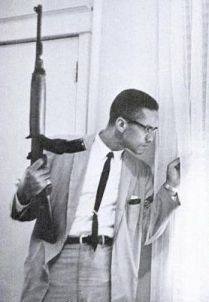The End of Black Rage?
 In class discussions, when my students speak about race and violence and the world in which we live, I often wonder what is going—is it our public schools? The textbooks? The teachers? Or something else? All of these?
In class discussions, when my students speak about race and violence and the world in which we live, I often wonder what is going—is it our public schools? The textbooks? The teachers? Or something else? All of these?
In discussions of race, in the last five years, I find some disheartening trends: Black students laying the blame of racism at the feet of Black people; Black students universalizing Black suffering, shifting the conversation from the specific to a generalized, “all people suffer oppression”; Black students wholeheartedly believing in Black criminality even as they are the victims of racists beliefs and practices; and finally, the most frightening, Black students uttering the line, “that wasn’t about race.” So I am not surprised AT ALL that the young, Black, female juror in the trial of Michael Dunn for murdering Jordan Davis would utter those words. I have words. I have thoughts. At the moment, they’re inchoate. I see these responses every day when I teach.
These responses have become almost a mantra for students. If I teach 2 or 3 or 4 classes per semester, I can expect to hear the verification of Black pathology heatedly defended as fact by Black students. A student once said to me, “These people are animals.” She is black, female, poor.
And when I think about where all of this is coming from, I think about their frame of reference for understanding and engaging in discussions on Black life, Black creativity. Students have a single narrative of Black life in America: slavery to emancipation to civil rights to Obama. They have been starved not just of knowledge of self but also of their rich histories. And they have been starved of the desire to learn about those histories, cultures, creativities, and knowledge. Deliberately so.
A conversation with students about violence against women, in which I mention that a Black man beat a Black woman bloody because she talked about him, is met not with shock or anger but rather with, “She shouldn’t have come out her mouth.” When I ask the question, “Is it reasonable or rational to counter a Black woman’s words with fists?” again, the fault lies with the woman for speaking. They believe this. When I ask what it means for young black people to believe such ugliness about themselves, I am met with rage.
I feel their rage, because often, it is directed at me. Black. Female. Professor. I am unfamiliar territory. I disturb their universe. And I do not corroborate the years of “knowledge” about Blackness they have been fed. Their rage is exhausting. Yet, it lets me know that there is some kind of awareness that they have been lied to.
I am deeply, deeply saddened. Every day.
